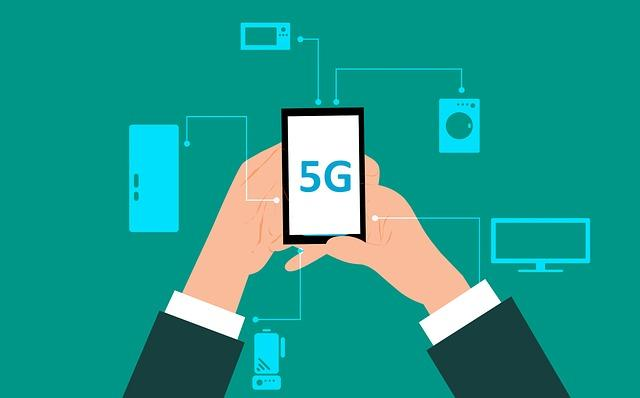You no doubt agree with me that there are people around this world still using 3G. 4G is already here and those that are using it have nothing but praise for its speed and convenience.
Very soon, 5G will be available.
When was the first time you heard about 5G? I first heard about 5G during the Winter Olympics of PyongChang, South Korea where it made its global debut.
Like me, you probably assumed that with the blazing speeds that 4G offers compared to 3G, 5G will be a lot faster.
But is it? What is 5G technology? What is 5G network? How will 5G work?
Before we answer these question and many others in this article, let us first address the elephant in the room:
What is 5G and What is the 5G Network?
Many people don’t understand how 5G works. 5G refers to the fifth generation mobile wireless standard and is the newest. The 5G standard is based IEEE 802.11 broadband technology standard.

However, a 5G standard has yet been set. What is 5G network?
Groupe Speciale Mobile Association (GSMA) Definition of a 5G Network
According to the GSMA, a connection needs to meet the following criteria to qualify as 5G.
1) An end-to-end round-trip delay of one millisecond.
2) It should support between 10 and a 100 times connected devices.
3) 5G should have a 100% coverage.
4) Low power machine-type 5G devices should have a battery life of 10 years.
5) 5G should have connection speeds of between 1 and 10Gbps.
6) 5G should have a 1000x bandwidth per unit area.
7) 5G should have 99.999% availability.
8) 5G should have a 90% fall in network energy consumption.
When Can I Start Using 5G?
5G is expected to become operational 2020. It is no surprise that companies are focusing their resources in preparation for the new 5G standard.
Check this out…
3G receives signals from the nearest phone tower and is great for messaging, making calls and internet data. 4G, a successor to 3G and predecessor to 5G, uses the same technology as 3G but has a faster connection and lower latency.
4G is around five times as fast as existing 3G services. It can in theory offer a maximum download speed of 100Mbps. How does 5G work? With regards to Wi-Fi, 5G will be around three times as fast as 4G. It will have 450Mbps in single-stream and 1.3Gbps for three-stream.
But what is 5G Wireless Technology Good For?
As IoT and smart devices continue to grow, the capacity and speed for 5G will accelerate its development.
Pros of 5G and Why You Should Use It
With 5G, you probably are asking yourself a slew of questions: How fast is 5G internet? How fast is 5G LTE? What is the speed of 5G? How fast is 5G speed?
Just like 4G was faster than 3G, 5G will be much faster than 4G.

As such, all 5G-capable devices will offer a lot more productivity than 4G. So what is the answer to how fast is 5g or what is 5G speed? Theoretically, 5G will have download speeds of 10,000 Mbps.
And this is important because:
While 4G can offer hundreds of Mbps, 5G will offer several Gbps. This will spawn a number of applications and innovative services that will benefit from the level of connectivity that 5G has to offer.
Also, 5G’s greater bandwidth not only gives developers and companies the ability to run more complex internet apps, but also offers more download speeds.
Cons of 5G and Why You Should Have Second Thoughts
The first disadvantage is that 5G will cost more to implement. Since only the newest mobile devices will support it, the 4G handsets of today will become outdated.
The reliability of an internet connection is determined by the number of devices connected to a single channel. When 5G is finally added to the wireless spectrum, it will create the risk of overcrowding the frequency range.
And you know what the biggest problem will be?
The problem with 3G or 4G is that they don’t give everyone an immediate superfast connection. In the UK, for example, there are regions and handsets that don’t support 4G. As such, 5G’s release will be quite patchy.
New Business Models
The initial improvement costs to implement 5G will be huge. However, consumers do not always welcome cost increases. So as to break even, telecommunications providers will offer new types of services to new customer segments who will use 5G.
1) Edge Computing Services
Edge computing services will bring computing power closer to the point where sensor data can be collected from remote wireless devices. This will eliminate the latency that is characteristic of applications based on the public cloud.
2) Video Delivery Services
Video delivery services whose capability far surpasses modern multi-channel video program distributors like Comcast.
This will give companies like Hulu, Amazon, and Netflix more power and reach. There is also the possibility that this will create more competition for these companies.
3) Fixed Wireless Data
Telecom companies could also offer fixed wireless data in heavily populated areas. The gigabit per second speeds delivered by 5G will be provided for by different types of microwave relay antennas.
4) Inter-Machine Communications
Companies may also enable inter-machine communications using 5G. As a result, this could bring low-latency connectivity to robots that work in assembly lines and self-driving cars.
5) Software Consuming Services
With 5G, it will not just be humans consuming services, but also, software consuming services. With past technology, communication has mainly been humans communicating with other humans.
With the internet, it has mainly been humans requesting services from software.
Amazing, right?
Starting with 5G and into the future, software will be talking with other software. As such, the whole dynamic of the services delivery through the networks will change.
Who Is Investing in 5G?
5G is still under development, meaning that it is not yet being used by anyone. Nonetheless, many companies around the world are creating and experimenting with 5G products.

Companies that have made significant contributions to the 5G standard include Qualcomm, Nokia, Ericsson, BT, and Samsung. There are also other companies that are pledging money and forming 5G partnerships to advance 5G research.
Look:
5G efforts at Samsung and Qualcomm are mainly focused on hardware. Qualcomm has built a 5G modem while Samsung has made a 5G-enabled home router.
Ericsson and Nokia, on the oth
er hand, have come up with 5G platforms targeted at mobile carriers.
Ericsson and Nokia have created 5G platforms, not for users, but for mobile services providers. Early in 2017, Ericsson launched a platform capable of providing the first 5G radio system.
Ericsson started 5G testing in 2015. Nokia created its “5G First” platform, with the goal of giving carriers end-to-end support.
Why does this matter?
Cities like London have also invested in 5G. London made available its public Wi-Fi network made up of 400 cell transmitters. London will run 5G trials on the system. The English capital will dedicate £16 million to create a 5G hub.
There are also plans to create 5G hubs in Newport, Wales to support driverless cars, 5G, and robotics. £38 million has been dedicated to developing compound semiconductors that are at the foundation of 5G technology.
5G Usage Scenarios
What will 5G bring? 5G will offer a lot of support for self-driving cars, mission-critical applications like e-health and industrial automation. 5G will boost augmented reality development.
With 5G, people will be able to work and play in the cloud.
Another use case scenario for 5G will be UHD screens and 3D video. 5G will help enhance smart homes and buildings, voice communications and even support smart cities.
Why is knowing 5G usage scenarios important?
5G’s usage scenarios will offer enhanced mobile broadband, support massive machine type communications, and offer ultra-reliable and low-latency communications.
The New Cloud at New Edge
Most of the success of 5G rests on a new type of cloud data centers, capable of supporting the functionality of modern baseband units. Towards the end of April 2018, there was a lot of uncertainty on where the centralized Radio Access Network (RAN) controller would stay.
An interesting phenomenon is that new edge data centers are emerging next to cell towers. This suggests the possibility of distributing the new Service Oriented Core (SOC) across such locations.

However, skeptics question the practicality of the Base Transceiver Station (BTS) station. Wouldn’t this make such a station a data center, with its own real estate and cooling issues?
Here’s the deal:
If the servers in question delegate some computing infrastructure among special customers and internal operations, edge computing may soon compete with Microsoft Azure and Amazon Web Services through low latency.
5G will accomplish its goals through network slicing. Slicing is when physical infrastructure is divided into many virtual platforms.
Conclusion – The Race to Replace the Future
5G is a bargain between society and the telecommunications industry.
For 5G to work, the base stations containing the receivers and transmitters must not only be smaller but also consume less power and exist in greater numbers than today’s cell towers.
But is this really an inconvenience?
Look:
We’ve managed to construct electric and telephone poles through our neighborhoods. Not long ago, we installed TV aerials on top of our houses.
Some of us use these old TV aerial mounting posts to hold satellite dishes.
Telecom companies must make infrastructural changes in quick succession because 5G is coming and companies that resist it will soon fall into oblivion.
Congratulations for sticking around this long! You now know what is 5G technology and what is 5G network.






